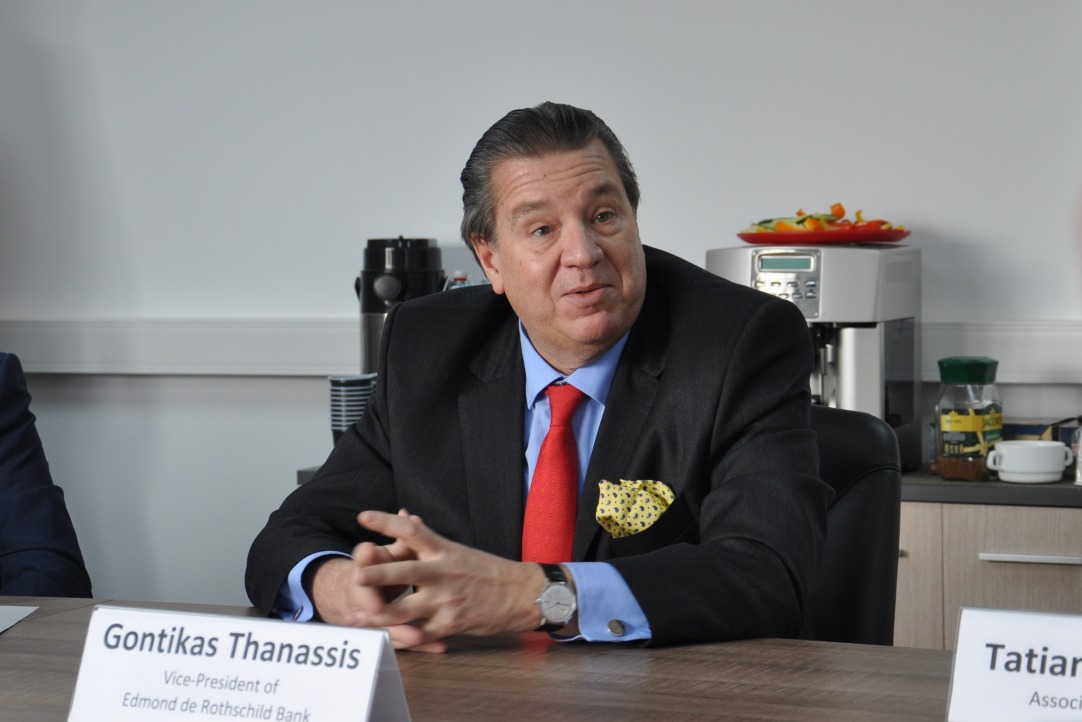We Forecast a Severe Global Recession

ICEF held a round table on Global Economy Challenges in 2020. Mr Thanassis Gontikas, Senior Vice-President of Edmond de Rothschild Bank (EdR) in Switzerland, was invited as a speaker.
Naturally, the main topic of the round table was the Coronavirus, or Covid-19, which is currently changing the development scenarios of the global economy in 2020. Until Covid-19 started to spread outside China, economists did not give pessimistic estimates of virus’s impact. However, since the end of February, experts almost unanimously agree that a global recession is unavoidable. After a series of “minor heart attacks” on the stock market and a rapid decline of Federal Reserve System rate there is a cause for concern about the economic impact of coronavirus on the USA and other leading Western countries.
It is now obvious that the largest economies (the USA and China) will suffer because of the epidemic. The face-to-face service sector will lose thousands of clients who are worried about the virus, and the shopping is done mostly online. Gyms, dentists, malls, spas and the travel industry will suffer losses measured in billions.
Experts here draw a common analogy that in the same way that the virus is most dangerous to elderly people, it is also most dangerous to mature economies.
What do Edmond de Rothschild’s experts think?
The global scenario according to EDR is as follows: total uncertainty in the US elections and a fall in the price of oil: “We forecast a severe global recession” - confirmed Thanassis Gontikas. The experts have also given the following forecasts based on EdR studies:
· China slowdown must exert pressure on other countries with developing markets, even if they loosen their monetary policy;
· Investment in the USA might keep slowing down;
· Stabilization of Industrial production in the Eurozone in 2020 may limit the GDP growth slowdown in Russia;
At this point, the most evident problem that will concern everyone without any exceptions will be the consequences of disruption to the global supply chain — from spare parts to medicine and iPhones, which are selling out. These and other obvious signs of the crisis make analysts speak about recession that might face us in the nearest months due to the closing of “the global marketplace”. For example, the automotive industry may reduce its capacity to around 7,5 million items this year.
Further points discussed on the round table:
· There is a problem of private investments’ shortage and investor’s fear of projects that lie beyond real estate area. Maybe investors find investments in portfolio securities traded on the financial market “unsexy”? - argued Thanassis Gontikas.
· Investments in ecological projects is a very big risk.
· The Chinese government has made solar energy attractive for private investors through subsidies. But there are still two unanswered questions left: how much to invest and for how long.
· Gas and oil today are not just a part of the world economy, but a “highly political issue”.
· Demographic problems in Europe are an existential issue. According to Gontikas, in the face of the loss of cultural continuation, which has formed social and economic background in Europe for centuries, business now exists under constant pressure and uncertainty.
· Taking into account the great leap that the European economy made after the Second World War, the round table participants made an analogy with the loss that had happened due to the coronavirus epidemic. Possibly, the situation will cause a reverse effect and economy will grow rapidly. Moreover, it is a chance for Russia to move forward while the USA undergoes the crisis.
Who participated in the round table?
One of main Gontikas’ interlocutors was Martin Gilman, ex-director of the IMF’s Moscow Office, he had been the Head of HSE Center for Advanced Studies for several years. ICEF representatives also took active part in the discussion – Maxim Nikitin, Vladimir Sokolov, Alexey Boulatov, Oleg Zamkov, First Deputy Dean of the Faculty of Economic Sciences Sergey Merzlyakov and students that showed great interest in the round table.
About the speaker:
Thanassis Gontikas is a Senior Vice President at Edmond de Rothschild Private Bank in Geneva since 2002. Before that he was a member of board of directors at YMCA World Alliance and HSBC BANK PLC. He is a Boston University alumnus.